Description
Euphorbia Milii – Succulent Plant
Euphorbia has Bright-green leaves that grow along its thick, thorny stems. Lower leaves naturally fall off as the plant ages. If your plant gets too tall and leggy, you can prune it back by half its size in spring. This will cause it to branch out. New stems will grow from below where the pruning cuts were made, making this succulent bushy and full.
Euphorbia includes annuals, perennial herbs, shrubs, and trees that have corrosive and poisonous milky sap. Many are succulent and can either be thorny or unarmed. The deciduous leaves can either be alternate, opposite or in whorls. All spurges produce unisexual flowers.
Its flowering is actually bracts that last for several weeks and are available in bright pink, red, white, or yellow.
Today’s hybrids produce more — even bigger — flowers than ever before. Spring and summer are usually the best seasons for an abundance of blooms.
Crown of Thorns flower dependably when they get enough light. They’re easy to grow and drought-tolerant, preferring slightly dry, sandy soil. This succulent stores water in its thick stems just like a cactus, so it can be watered less frequently than other house plants. If its leaves turn yellow and fall off, cut back on the watering.
Care for Euphorbia
- Also, avoid placing the plant in an area with direct sunlight before the plant establishes a mature root system.
- It is advisable to wear gloves when taking euphorbia cuttings because latex can cause skin irritation.
- Prune off growing tips to control plant height.
- Plants that don’t bloom aren’t getting enough light. Move Crown of Thorns to a sunny window where it gets about 4 hours of direct sun every day.
- CAUTION: Wear thick gloves when handling this plant — those thorns are sharp! Also, watch out for its toxic, milky sap, which can irritate your skin, eyes, and mouth.
Euphorbia Milii Care
- Sunlight – Bright light to full sun.
- Watering – Allow the top 1 in (2.5 cm) of soil to dry out between waterings. Waterless in winter when the plant rests. Also, avoid getting water on the leaves and stems because they can rot if they get too wet.
- Soil – A fast-draining medium such as cactus potting mix works best.
- Temperature – Grows best with average room temperatures 60 to 75F/16 to 24C; A cooler winter rest of 55F/13C will help promote flowers in spring and summer.
- Fertilizer – Feed every 2 weeks spring through fall with a balanced liquid fertilizer diluted by half. In winter, feed monthly.


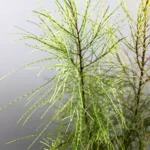
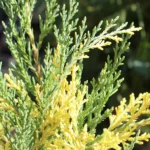
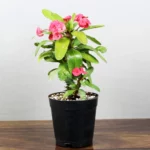
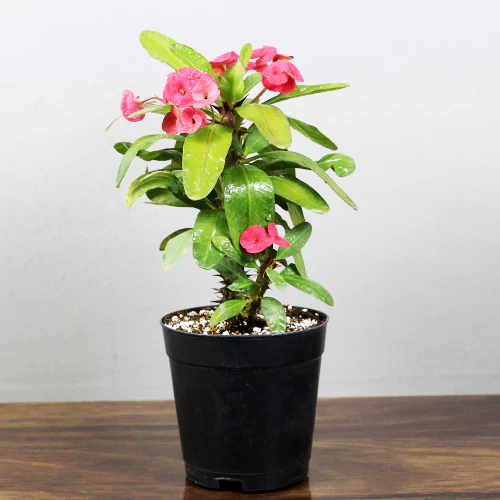
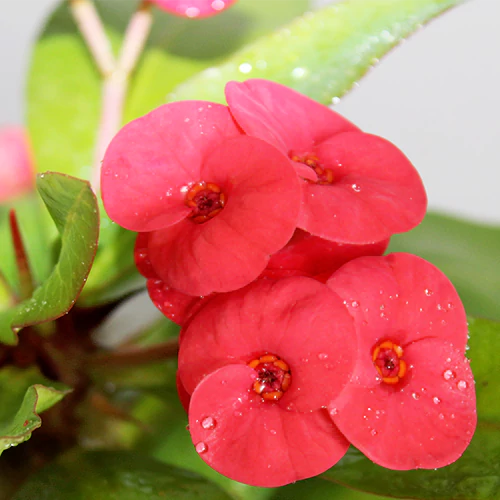
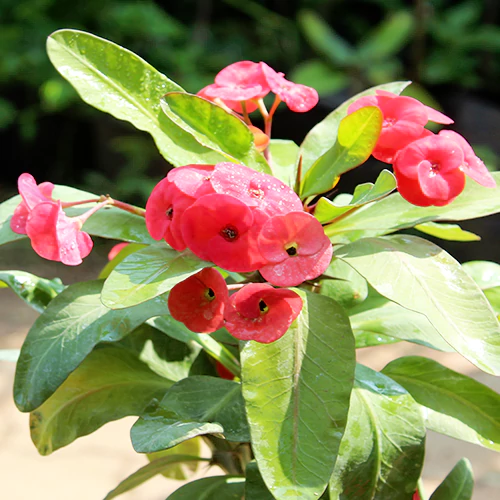
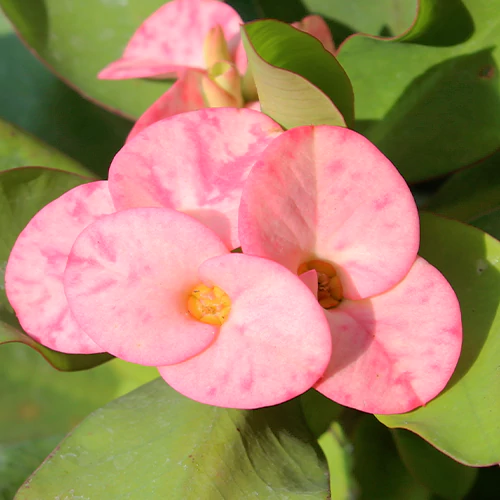
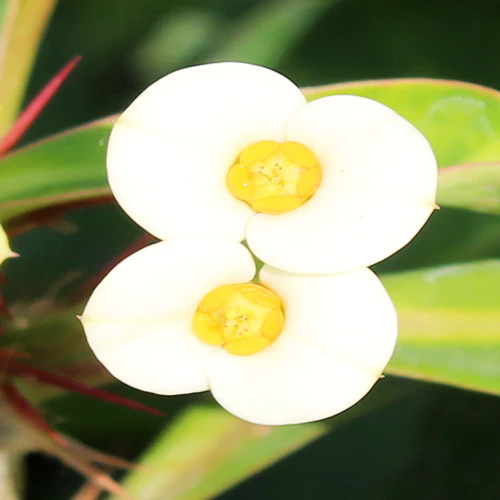
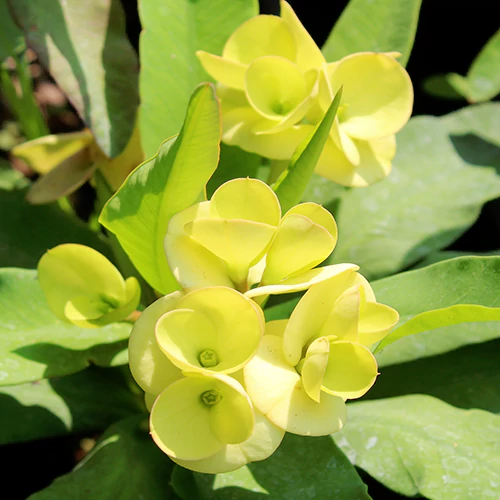
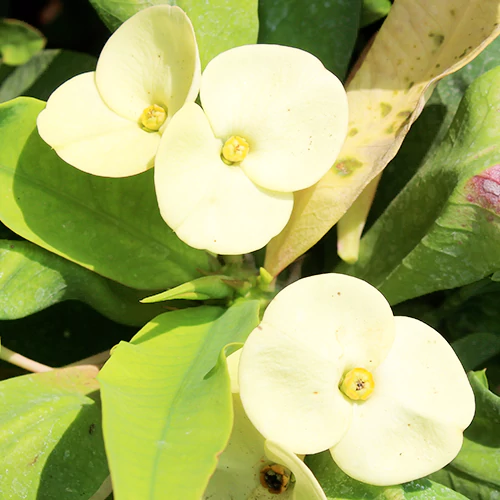
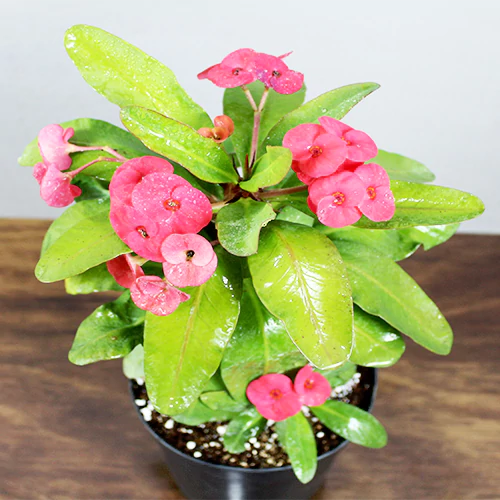







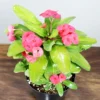


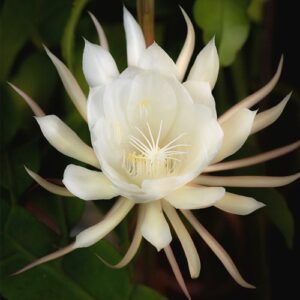

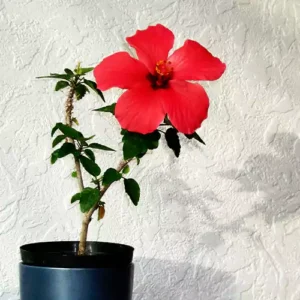
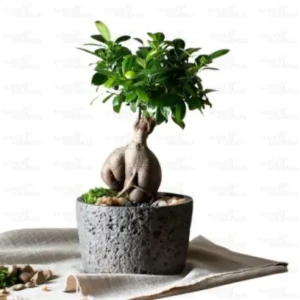


Reviews
There are no reviews yet.